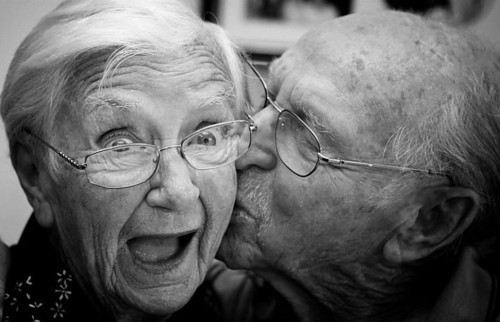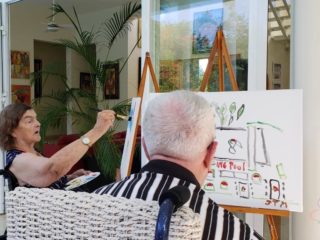The Wisdom of the Aged

To many Western people, old age is to be delayed ( by eating and living healthier ) or avoided ( through plastic surgery ) in order to avoid reaching the unavoidable: the elderly years. It is true that the older we get, the more limitations we face in terms of independence: health issues, mobility issues, even family issues. Aging isn`t just a biological process – it is also very much a cultural one. The reason behind this might be in part the way our culture deals with the elderly, which might contrast when compared to other cultures.
A Cultural Phenomenon
In places like Korea, celebrating 60 and 70th birthdays are major life events, and Koreans have the utmost respect for the elderly. Mediterranean and Latin cultures keep various generations under the same roof, and the elders wisdom in old age grants them priority in big decisions that affect the whole family. In India, elders are the head of the family, supported by the younger family members and play a key role in raising their grandchildren.
Youth-centric Western cultures are based on individualism and independence, traits taken from the Protestant work ethic, that values the individual by his or her ability to work, something that diminishes in old age.
VIDEO: The Wisdom of the Aged
John Leland from the New York Times published an article in late 2015, titled “The Wisdom of the Aged”, depicting life experiences of six people age 85 and older, whose lives were followed throughout the year and yielded a treasure trove of new perspectives on living and fulfilling our lives.
The question on the secret to a long life, is answered by senior citizens whose long lives can teach us a big lesson on forgiveness, integrity, gratitude, curiosity, unselfishness and inner growth. Elderly people hold a lot of information the younger can use to enrich their lives.
The Elderly Seen Across Cultures
Anthropologist Jared Diamond studied the treatment of elderly across cultures, and published an interesting study that should serve as universal reference for self-check, when dealing with geriatrics and family. Many cultures celebrate aging and place high value to the elderly, which is not the case of Western cultures because youth is fetishized and physical signs of human aging tend to be regarded with distaste.
The opposite happens in Greece, where the cultural stigma around aging and death is absent from their culture. Instead, old age is honored and celebrated, and elders are an integral part of the family as a whole.
It has been proven that wisdom and old age go hand in hand, and it has been scientifically documented that wisdom comes from a balance of activity in brain regions, with life experience. Younger people benefit a lot from learning from the elders, and caring for them can be an enriching experience when seen from the perspective of other cultures.

Dr. Monika Ardelt, an associate professor of sociology at the University of Florida, have begun to study whether older really is wiser. In surveys of people in nursing homes and hospices, she found out that wisdom was positively related to their sense of well-being, even after the researchers controlled for factors like physical health, financial status and social engagement. The frailer or closer to death people became, the greater the role wisdom played in their feelings of well-being.
Ancient Romans made use of their elderly and had faith in their wisdom and experience, quoting Cicero: “For there is assuredly nothing dearer to a man than wisdom, and though age takes away all else, it undoubtedly brings us that.“
In African culture, there is less fear around aging, and the older generations usually live with the younger ones ( similar to Latins ) all under one roof as a big happy family. The transition to a positive, active and developmentally oriented view of aging may well result from action by elderly people themselves, through the sheer force of their growing numbers and influence. The collective conscious of being elderly, as a socially unifying concept, can in that way become a positive factor.
Bibliography:
- The Wisdom of the Aged, by the NY Times
- Life lessons to learn from the elders, by Listovative
- Growing old in different countries, by Ted
- Aging and Society, by Wikipedia






